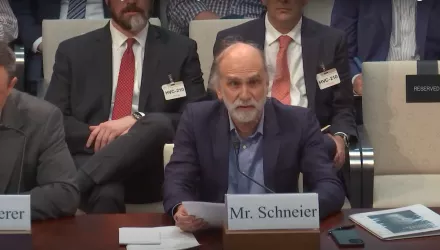AI Cyber Lunch: Josephine Wolff on "The History of Cyberinsurance & War Exclusions"
Join the Science, Technology, and Public Policy Program for an AI Cyber Lunch Seminar featuring Josephine Wolff, Associate Professor of Cybersecurity Policy at The Fletcher School at Tufts University. In a talk entitled, "The History of Cyberinsurance & War Exclusions: Who Pays for State-Sponsored Cyber Attacks?" Wolff will explore what constitutes cyberwar and when cyberinsurance carriers are obligated to pay for damages linked to state-sponsored attacks - an increasingly important issue in the context of the Russian invasion of Ukraine.
Q&A to follow. Buffet-style lunch will be served.
Registration: In-person attendance is limited to current Harvard ID holders. No RSVP is required. Room capacity is limited and seating will be on a first come, first served basis.
Members of the public are welcome to attend virtually via Zoom. Virtual attendees should register using the button below; upon registering, attendees will receive a confirmation email with a Zoom link.
Recording: Please be advised that this seminar will not be recorded.
Accessibility: Persons with disabilities who wish to request accommodations or who have questions about access, please contact Liz Hanlon (ehanlon@hks.harvard.edu) in advance of the session.




